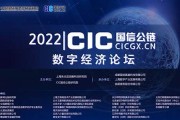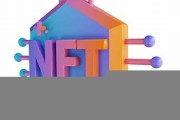
Digital currencies, also known as cryptocurrencies, are a new form of currency that use
cryptography to secure and verify transactions. They operate independently of
traditional financial systems and have gained popularity in recent years due to
their decentralized nature, security features, and potential for low transaction
fees. In this article, we will discuss the standards that govern digital
currencies.
1. Cryptography
Cryptography is the foundation of all digital currencies. It is used to secure and
verify transactions, ensuring that they cannot be tampered with or altered. Crypto
algorithms use complex mathematical equations to create a secure code that is
unique to each digital currency. This code ensures that only authorized users
can access and modify transactions.
1. Blockchain Technology
Blockchain technology is the underlying system that powers most digital currencies. A
blockchain is a decentralized ledger that records all transactions made on the
network. Each block contains a unique code, called a hash, that connects it to the
previous block in the chain. This creates an unbreakable chain of blocks that can
never be altered without altering the entire network. Blockchain technology also
uses cryptography to ensure that transactions are secure and cannot be tampered
with.
1. Smart Contracts
Smart contracts are self-executing contracts with the terms of the agreement between
the parties directly written into lines of code. They are stored on a blockchain and
are executed automatically when certain conditions are met. Smart contracts can
be used to automate many processes, including supply chain management, insurance
claims processing, and voting systems.
1. Digital Asset Management
Digital asset management refers to the process of tracking, storing, and managing digital
assets such as cryptocurrencies. Digital asset management systems use encryption
and other security measures to protect assets from theft and unauthorized access.
Some digital asset management systems also include features such as automatic tax
reporting and compliance reporting.
1. Regulatory Frameworks
Regulatory frameworks refer to the laws and regulations that govern the use of digital
currencies. Different countries have different regulatory frameworks for digital
currencies, and some have banned or restricted their use entirely. Some countries have
established regulatory bodies to oversee the development and use of digital currencies,
while others have left regulation up to individual companies and individuals.
In conclusion, digital currencies are governed by several standards, including cryptography, blockchain technology, smart contracts, digital asset management, and regulatory frameworks. These standards ensure that digital currencies are secure, transparent, and trustworthy, making them an attractive option for investors and consumers alike. As the technology continues to evolve, it is likely that these standards will evolve as well, creating new opportunities for innovation and growth in the digital currency industry.








